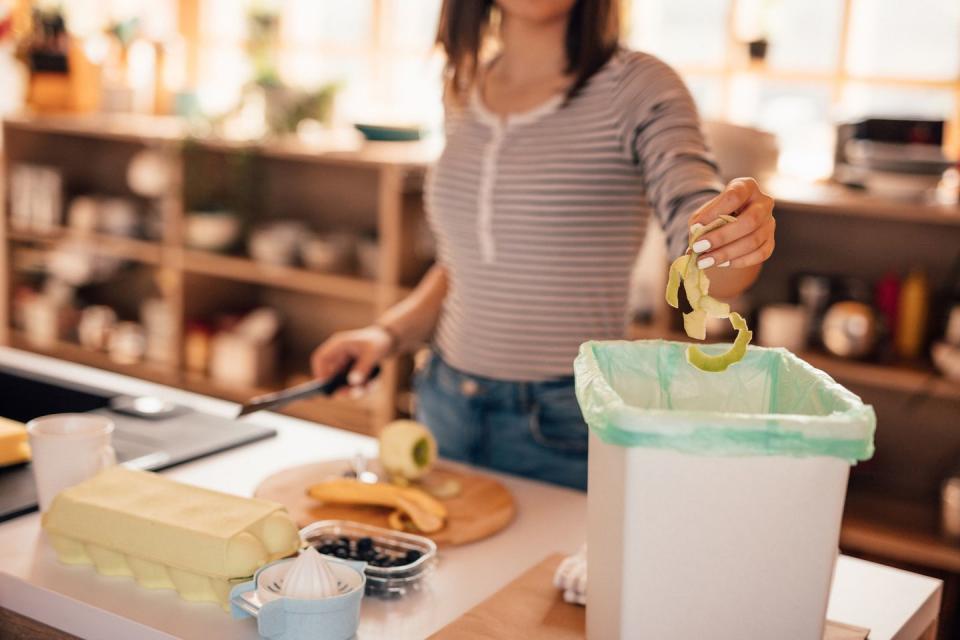Coronavirus: How to get rid of rubbish if your bins aren't collected

If your normal bin collections have been disrupted since the start of the coronavirus outbreak, you’re not alone.
While 85% of local authorities say they are still making normal household waste collections, one in four recycling collections have been disrupted, according to figures from the Association of Environment, Economy, Planning and Transport (ADEPT). Meanwhile, just over a third of food waste collections have been either disrupted or stopped entirely.
However, it’s garden waste collections that have been the worst hit. Only two in five local authorities are running a normal service, with roughly the same number saying they’ve halted garden waste collections altogether. Some local authorities have already said they will extend garden waste collection subscriptions for the length of time the service is suspended for.
Now, several local authorities have issued a plea to residents to help ease the pressure on waste collection services. If your bin collections have been affected by the current situation - and even if they haven't, yet - here are some simple steps you can take to help deal with your rubbish.
1. Put your bins out early
With many local authorities reporting staff shortages due to illness or self-isolation, and with less traffic on the road to slow down waste collection lorries, the time your bins are emptied may vary considerably. To ensure your bins don’t miss the boat, try to put them out as early as possible on the day they’re due to be emptied in case the bin lorry arrives early!
2. Only put bins out when they’re full
With fewer staff available to collect rubbish, try only to put your bins out when they’re full to lessen the load where collection services are still operating. Try to compact the rubbish in your wheelie bin down as much as possible to make more space.

3. Reduce food waste
Now more than ever, reducing food waste is a priority. It helps minimise trips to the supermarket and is essential if your food waste collections have become less regular. Plan meals to buy only what you need and freeze anything that you won’t manage to eat before its ‘use by’ date, if you can.
If you don’t already compost food waste at home, now might be a good time to start!
4. Don’t mix your rubbish
Got a mountain of cardboard recycling piling up from Amazon deliveries now most shops are shut? Us too. If you can find space at home, break down cardboard packaging and find a space to store it until there’s room in your recycling bin or until normal recycling collections start up again. Don’t mix it in with normal household waste if you can avoid it.
As local recycling centres have closed their gates to follow social distancing guidelines, don’t be tempted to put items you would have taken to the tip in your regular household waste bin, either. ‘People shouldn’t put waste that may have taken to a recycling centre in household bins as it may overwhelm collection services,’ advises Mike Goodman from waste company, Surrey Environment Partnership. ‘If you’re having a clear-out while at home, hold on to waste as much as possible until normal services resume.’
5. Double bag tissues
If your household is self-isolating because someone has symptoms of coronavirus, put any personal waste such as tissues and wipes in a tied rubbish bag, then place this inside another securely tied rubbish bag. Leave this indoors for 72 hours before putting it in your wheelie bin to minimise the spread of germs. Also make sure wheelie bin lids are properly closed – this helps stop bin collection staff coming into contact with your rubbish.
For more updates, tips and practical advice from the GHI, sign up to our newsletter to get more articles like this delivered straight to your inbox.
You Might Also Like

 Yahoo News
Yahoo News 